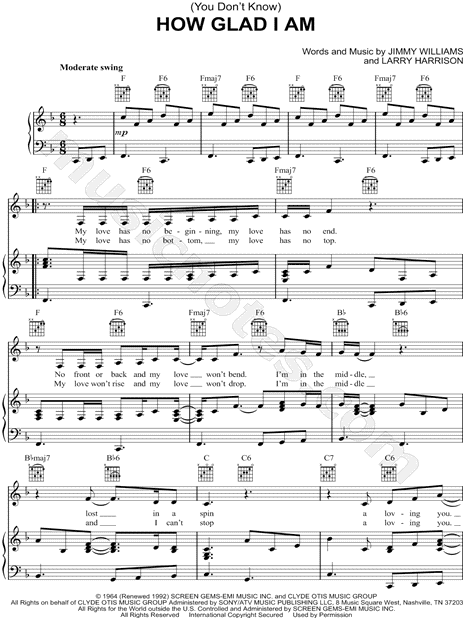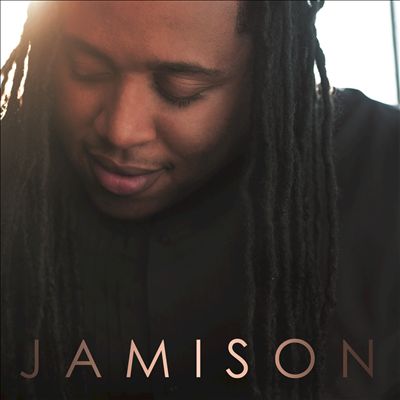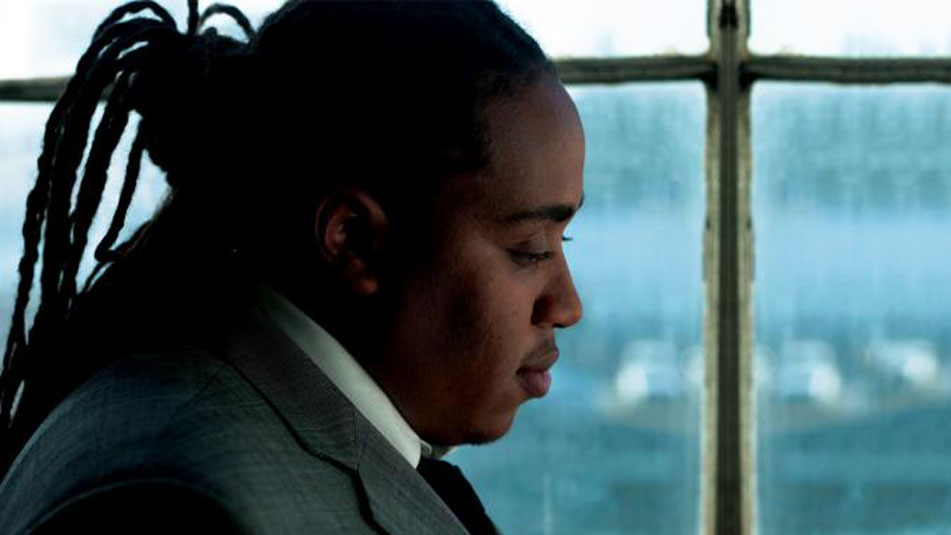
SOUND PROJECTIONS
AN ONLINE QUARTERLY MUSIC MAGAZINE
EDITOR: KOFI NATAMBU
FALL, 2021
VOLUME TEN NUMBER THREE
DONALD HARRISON
(October 2-8)
CHICO FREEMAN
(October 9-15)
BEN WILLIAMS
(October 16-22)
MISSY ELLIOTT
(October 23-29)
SHEMEKIA COPELAND
(October 30-November 5)
VON FREEMAN
(November 6-12)
DAVID BAKER
(November 13-19)
RUTHIE FOSTER
(November 20-26)
VICTORIA SPIVEY
(November 27-December 3)
ANTONIO HART
(December 4-10)
KANDACE SPRINGS
(December 11-17)
JAMISON ROSS
(December 18-24)
https://www.allmusic.com/artist/jamison-ross-mn0002399346/biography
Jamison Ross
(b. November 12, 1987)
Artist Biography by Matt Collar
Florida-born drummer/vocalist Jamison Ross is a fluid percussionist and gospel-influenced singer, best known as the 2012 winner of the 25th annual Thelonious Monk International Jazz Competition. Raised in Jacksonville, Florida, Ross grew up singing in his grandfather's church and began playing drums at age three. By the age of 15, he was already leading the church band as Minister of Music. Encouraged by his mother to pursue music formally, Ross took drum lessons throughout elementary school and attended high school at the prestigious Douglas Anderson School of the Arts. While there, Ross played in the jazz band and won top honors at Jazz at Lincoln Center's Essentially Ellington High School Jazz Band Competition -- an experience captured in the 2007 documentary film Chops. After high school, Ross earned his B.A. in jazz studies from Florida State University. He then relocated to New Orleans, where he furthered his education, earning his Master's degree from the University of New Orleans. Choosing to stay there, Ross found work with a bevy of name artists, including vocalist Carmen Lundy, pianist Ramsey Lewis, gospel singer Byron Cage, and others.
In 2012, Ross won the 25th annual Thelonious Monk International Jazz Competition, and garnered a recording contract with Concord Records. Two years later, he released his debut solo album for the label, the R&B- and gospel-infused Jamison. Well-received, the album garnered a Grammy nomination for Best Jazz Vocal Album. In 2018, Ross returned with his sophomore Concord album All for One, featuring contributions from pianist Chris Pattishall, guitarist Rick Lollar, bassist Barry Stephenson, and organist Cory Irvin.
https://www.allaboutjazz.com/musicians/jamison-ross
Jamison Ross
Jamison Ross is a vocalist and drummer that delivers messages of humanity through the medium of jazz.
A native of Jacksonville, FL, Jamison’s passion for music was realized while growing up in his grandfather’s church, where he realized the affectiveness of music. Jamison began his study of jazz as a high school student at Douglas Anderson School of the Arts and gained worldwide acclaim as a featured musician in the Tribeca Film Festival winning documentary CHOPS; a film that followed the school’s jazz ensemble as they prepare and perform in the renowned Jazz at Lincoln Center’s Essentially Ellington Festival competition.
Ross continued his study of the genre at Florida State University (B.A., Jazz Studies), where he met his current band members and at University of New Orleans (M.M., Jazz), in the city where he currently resides. In 2012, Ross’ career began to take shape after winning the Thelonious Monk Jr. International Jazz Competition for his drumming. This achievement afforded him a recording contract with Concord Jazz. Jamison recounts, “at the time, people knew me as a drummer; they didn’t know I could sing. I wanted to merge my gifts.”
His 2015 debut release, Jamison, introduced the world to his concept of rhythm and melody and also garnered a GRAMMY® nomination for Best Jazz Vocal Album. His sophomore release, All For One, takes listeners a level deeper into Jamison’s ethos
Jamison Ross
Career
A native of Jacksonville, Florida, Jamison sang and played drums at his grandfather's church. He studied music at Douglas Anderson High School and Florida State University where he earned a Bachelor of Arts in Jazz Studies. He attended the University of New Orleans where he earned a Master of Music.
His career began during high school after appearing in the 2007 documentary Chops.[3] In 2009, he was invited to the Betty Carter Jazz Ahead Residency at the Kennedy Center in Washington, D.C. During this program he met singer Carmen Lundy, who invited him to join her band. He recorded with Lundy on her albums Changes[4] and Soul to Soul.[5]
On June 23, 2015 Concord Jazz released Ross's debut album, which was recorded at Esplanade Studios in New Orleans.[6] The album includes a guest appearance by Jon Batiste, bandleader for the Late Show with Stephen Colbert.[7] The album received a nomination for Best Jazz Vocal Album at the 58th Grammy Awards.[8]
Awards and honors
- Won Thelonius Monk International Jazz Competition, drums, 2012
- Mentioned by Vanity Fair magazine[9]
- Produced GRAMMY-nominated song "Let Me Go" by Mykal Kilgore
Discography
Filmography
| Artist | Year | Label |
|---|---|---|
| Snarky Puppy | Immigrance (2019) | GroundUp |
| Jamison Ross | All for One (2018) | Concord Jazz |
| NOLA w/Snarky Puppy | Family Dinner – Volume 2 (2016) | Ropeadope |
| Jamison Ross | Jamison (2015) | Concord Jazz |
| Irvin Mayfield | New Orleans Jazz Playhouse (2015) | Basin Street |
| Barry Stephenson | Basic Truths (2015) | Independent |
| Glen David Andrews | Redemption (2014) |
|
| Dr. John | Ske-Dat-De-Dat: The Spirit of Satch (2014) | Proper/Concord |
| Carmen Lundy | Soul to Soul (2014) | Afrasia |
| Cindy Scott | Historia (2014) | Catahoula |
| Meachum L. Clarke & True Purpose | Greater (2014) | True Purpose |
| Clarence Johnson | Watch Him Work (2013) | Like Father Like Son |
| Bill Peterson | Ruby Diamond (2013) | Summit |
| Rex Gregory | Rocket Summer (2013) | Rex Gregory |
| Carmen Lundy | Changes (2012) | Afrasia |
| Darius Paulk | Lyrics & Melodies (2012) | Darius Paulk |
| Title | Role | Production Company |
| Snarky Puppy: Family Dinner Vol. 2 (2016) | Featured Performer |
|
| Wynton Marsalis: A YoungArts Master Class (2014) | Featured Performer | HBO |
| CHOPS (2007) | Featured Performer | Virgil Films & Entertainment |
https://www.jamisonrossmusic.com/
“One of the hottest young names in music, singer and drummer, Jamison’s music shimmers between jazz, R&B, soul, gospel and blues. Think of a mix of Donny Hathaway and Elvin Jones. One minute you’re enjoying his super-soulful voice, gospel inflections and infectious love of melody; the next you’re digging his grooving, swinging drumming with his band.”—Edinburgh Jazz & Blues Festival

https://jazztimes.com/features/profiles/jamison-ross-give-the-singer-some/
Jamison Ross: Give the Singer Some
On his recent debut, the drummer, vocalist and songwriter strives to define himself
There’s a moment on Jamison,
the Concord Jazz label debut from drummer Jamison Ross, where a series
of soft, stop-and-start drum rolls ebb and flow to anchor his warm
tenor’s wordless, almost devotional vocal melody. Together, his drums
and voice create motifs that linger into the next number. In a way,
these two tracks represent the heart of the album.
“Jazz [Aubrielle Ross] Interlude” was written for Ross’ daughter. She
was born shortly before he cut the album-his first recorded foray into
playing drums and singing simultaneously-and he sees a parallel between
what she represents and what it means to combine two previously separate
artistic sides of himself. In both cases, he says, “I’m bringing two
worlds together.”
“Having a child … changed the relationship between me and my wife. It
also heightened our love for each other. At the same time, we had a
third person that was in that love,” says Ross, 27. He’s seated in a
quiet restaurant in his adopted hometown of New Orleans, nursing a tall
glass of ice water. Braids cascade over his large frame as he speaks,
openly and without hesitation, occasionally fluttering his hands to
drive home a point. “The concept of Jamison is me bringing this
rhythmic nature as a drummer together with this vocal nature,” he says.
“But also in my life I’m bringing together so much at this point in
time-and-creating who I am as an artist.”
An in-demand musician who’s toured extensively with vocalist Carmen
Lundy and keyboardist Jon Batiste, Ross has long defined himself as a
drummer, both professionally and in school. But he grew up singing in
his grandfather’s church in a predominantly African-American section of
Jacksonville, Fla., and that part of him remains imprinted on his
musical DNA.
In 2012, Ross won the Thelonious Monk International Jazz Drums
Competition, earning a new level of recognition and a recording contract
with Concord. For his first album as a leader, he figured he’d sing on a
couple of tracks since he’s always approached music from a melodic
standpoint, writing the melody of a song first and letting it develop
from there. Beyond that, he planned to make the drum record he knew
Concord expected. “But I was like, man, that’s not really what sums me
up as a musician,” he says. Ross discussed his concern with the label
and, after agreeing to start with a demo showcasing his vocals, got a
green light to proceed as he wished. “Next thing you know,” he says, “we
recorded at Esplanade Studios and there it was: I sang on 10 of the 12
tracks.”
Those tracks range from standards like a soulful take on “My One and
Only Love” to a slowed-down, opened-up version of “Bye, Bye, Blues,”
which he says emphasizes the song’s “Ray Charles come-home-baby-like
storyline.” Ross wrote originals like the inward-looking “Emotions” with
his usual focus on melody and a determination that each song should in
some way “get to the blues,” a lesson he learned while studying under
pianist Marcus Roberts at Florida State University’s jazz program.
“Unlike many drummers, Jamison understands music beyond the role of the
drums,” Roberts wrote. “He can see the whole musical picture and use
that knowledge to create very imaginative drum parts.”
Growing up in Jacksonville, Ross’ first instrument was the organ, after
which he picked up a variety of others while continuing to sing. “[The
musicians] controlled the atmosphere there. We embodied the spirit and
the mood,” he recalls. “That spirit of where I grew up is how I hear
music today. I hear it not in the form of notes and tones [but] in the
form of emotions and power and a certain type of conviction, a certain
message.”
While studying jazz drums in creative and performing-arts program, Ross appeared in Chops,
the 2007 documentary about his high school band’s appearance in the
Essentially Ellington Festival. After graduation, he declined an offer
to attend Berklee in favor of FSU’s jazz program, where he forged
lasting relationships with musicians like guitarist Rick Lollar and
pianist Chris Pattishall, both of whom appear on Jamison.
In describing the dynamic of the band that appears on the album, both
Lollar and Pattishall emphasize the importance of their shared
experience in the small but intense FSU program. “The record is the
culmination of a lot of years on bandstands and practice stands
together,” Lollar says.
The influence of Lundy, who gave Ross his first break as a touring jazz musician, is audible too, though in a higher-level way. “She’s taught me that it means more to do what you love, so that at the end of the day what you’ve done can speak for itself,” he says. “You may be dead and gone one day, but people can look back … and understand a mythology of who you were.” As for Ross’ mythology, it’s still being written. “This album is the beginning,” he says...
About this Artist
Grammy-nominated drummer and vocalist JAMISON ROSS won the Thelonious Monk International Jazz Competition in 2012. A Jacksonville, Florida native, Jamison received his B.A. in Jazz Studies from Florida State University and his master’s from the University of New Orleans. He has toured internationally and recorded with a variety of esteemed jazz artists including Cécile McLorin Salvant, Jonathan Batiste, Dr. John, Jon Cleary, Christian McBride, and Carmen Lundy. His debut album, Jamison, was released on Concord Records and was nominated as for a Best Jazz Vocal Album Grammy in 2015. He released his latest album, All for One, in January 2018. Jamison’s “roots in jazz and gospel give him thrilling chops and unfailing feel,” writes NPR.
Jamison Ross — A Star On The Rise

In 2012, at age 24, drummer/vocalist Jamison Ross won the prestigious Thelonious Monk International Jazz Competition, without singing a note. After all, it was a drumming competition. Part of the prize was a recording contract with the Concord Jazz recording label.
Earlier this year his record (titled 'Jamison') was released and this time it was his singing that caught the ears of critics and jazz fans, alike. And now he’s been nominated for a ‘Best Jazz Vocal Album’ Grammy award.
In this live Studio Session hosted by Abe Beeson, you’ll hear (along with three terrific songs) an extremely talented, genial young man talking about finding his was as a musician and about the astonishing fact that he originally had no plans to sing on this new record. It’s a good thing he changed his mind. Whether or not he wins a Grammy this time, he’ll have plenty of opportunities to do so in the years to come as he continues his ascent to jazz stardom.
Players:
Jamison Ross—Drums/Vocal
Eric Reed—Piano
Rick Lawlor—Guitar
Barry Stevenson—Bass
https://www.jamisonrossmusic.com/bio
One of the hottest young names in music, singer and drummer, Jamison’s music shimmers between jazz, R&B, soul, gospel and blues. Think of a mix of Donny Hathaway and Elvin Jones. One minute you’re enjoying his super-soulful voice, gospel inflections and infectious love of melody; the next you’re digging his grooving, swinging drumming with his band.
His 2015 debut release, Jamison, introduced the world to his concept of rhythm and melody and also garnered a GRAMMY® nomination for Best Jazz Vocal Album. His sophomore release, All For One, takes listeners a level deeper into Jamison’s ethos. The album is a result of a personal revelation that "we all have the capacity to love with empathy in a deeper way."

Critic’s Notebook
In a Monk Showcase, the Best Is Saved for Last
WASHINGTON — Jamison Ross sauntered onstage at the National Museum of Natural History here on Saturday with the solicitous gleam of a casino floor manager, his bulky frame encased in a suit and his face bearing a wide-open smile. Graciously, he initiated a round of applause for his fellow hopefuls in the 25th-annual Thelonious Monk International Jazz Competition, and another for the event’s unflappable house band. Then he sat down, picked up a pair of brushes and counted off “Bye Bye Blues,” an uncomplicated song recorded by dozens of American entertainers from the 1930s on.
Mr. Ross, 24, from Jacksonville, Fla., was the last of 12 drummers given a small window to make an impression. It had been a long afternoon — longer than usual, because of the logistics of swapping a dozen drum risers on and off the crowded stage — but he exuded good feeling.
He had a light but authoritative touch, bringing deep pull to the swish and snap of his brushes on the snare. Later, using drumsticks, he made a swinging ride cymbal pattern feel like a necessary tonic. He did nothing even approaching newness, but he seemed incredibly easy to play with. The bassist Rodney Whitaker and the pianist Geoffrey Keezer, laying into the groove with him, both perked up and uncoiled.
What is the measure of a great jazz drummer? Dynamic flexibility? Catalytic chemistry? Alertness to the moment? Mastery of form? This was all worth mulling over on Saturday and Sunday, throughout the course of this prestigious competition, which changes its instrumental focus from one year to the next. For some unknown reason the drum kit has been the focus only once before, 20 years ago.

State-of-the-art jazz drumming has changed drastically since then, becoming more about pulse and elasticity, incorporating a host of complex microstrategies from Cuban and Middle Eastern and electronic music, along with hip-hop. You wouldn’t know it by listening to Mr. Ross in the competition semifinals. But he was one of three to advance to the finals, and he took first place at the Kennedy Center here on Sunday night, winning over a panel of judges that represented excellence in his field: Jimmy Cobb, Ben Riley, Peter Erskine, Carl Allen, Terri Lyne Carrington and Brian Blade. His award came with $25,000 in music-scholarship funds and a recording contract with the Concord Music Group.
Mr. Ross’s peers on Saturday, culled from several hundred submission tapes, hailed from six states as well as Germany, Israel and Slovenia. According to competition guidelines, they were all under 30, and each had to play a solo; include one Thelonious Monk composition; incorporate brushes or mallets along with drumsticks; devote some time to ballad work; and make use of the entire house combo, which also included the saxophonist Jon Gordon, who won the Monk Competition in 1996.
A handful of competitors found room to express themselves within that framework, mostly in modest terms.
But the three finalists all presented a strong grasp of group interplay as well as a show of competence. Along with Mr. Ross, they were Justin Brown, 28, and Colin Stranahan, 26. Both played the trickily syncopated Monk tune “Evidence” but in strikingly different ways: Mr. Brown coolly demolished his version, raining single-stroke rolls around his toms and snare, while Mr. Stranahan worked more with tension and release, employing a rigid rock groove that finally shifted into swing.
Their mini-sets were about equally musical, full of polyrhythmic suggestion and graceful filigree, and it was clear that they both have high-level experience. Both of them will be working in New York this Tuesday through Sunday: Mr. Brown at the Jazz Standard, in a sextet led by the pianist Gerald Clayton, a former Monk Competition finalist himself; and Mr. Stranahan at the Village Vanguard, with Kurt Rosenwinkel’s Standards Trio.
The makeup of the finalists was a reminder, in case anyone needed it, that today’s jazz musicians come as rigorously prepared as professional athletes: Mr. Brown and Mr. Stranahan both started young, putting in shifts at the Brubeck Institute before heading to conservatories in New York; Mr. Stranahan later enrolled in the elite postgraduate program that is the Monk Institute’s other major gift to serious young musicians.

As for Mr. Ross, he figured prominently in “Chops,” a 2007 documentary about the Essentially Ellington High School Jazz Band Competition, held by Jazz at Lincoln Center. (Significantly, he and Mr. Brown both came up playing in church; you’ll find YouTube videos of each of them displaying their technical prowess, in the ecstatic recent tradition of “gospel chops.”)
The competition finals unfold each year within a shroud of pomp and circumstance: a byproduct of the Monk Institute’s tactical relationships with the State Department and a small array of corporate entities, including the competition’s title sponsor, Cadillac. Herbie Hancock, the institute’s chairman, shared host duties with Thelonious Monk’s son T. S. Monk, Billy Dee Williams and others, including Helen Mirren and Tipper Gore.
This year’s concert included the presentation of an award to Madeleine Albright, the former secretary of state, and a theme of “Women, Music and Diplomacy,” with an abundance of prominent guests, including the singers Patti Austin, Nnenna Freelon, Roberta Gambarini and Gretchen Parlato. As a centerpiece, Aretha Franklin delivered a commandingly embellished “My Funny Valentine” and an ironclad “Respect,” which she dedicated to the guest of honor. And in a coordinated shtick, Ms. Albright joined the trumpeter Chris Botti on a version of Puccini’s “Nessun Dorma,” hungrily attacking a cymbal with a pair of mallets.
Drum-wise, it was only the second most awkward moment of the evening, after a climactic traffic jam that had Mr. Ross and the entire cohort of judges (and Ms. Gore) attempting a relay on the Monk tune “In Walked Bud.” The delirious clutter of that moment presented a stark contrast to the performance that earned Mr. Ross the win.
He began with “Magnolia Triangle,” a soulful tune by the important New Orleans drummer James Black, set in an easy-drift 5/4 meter. Mr. Ross gave it a deep, unhurried feeling, swinging in the pocket, making the band sound comfortable. There was nothing flashy in his performance, not even during the solo, which had him casually rumbling on his toms between stretches of timekeeping. Near the end of the tune he put down his sticks and began shaking a tambourine in time, as Black might have done.
There was moxie in this skilled reduction of his task, as if he were expecting to win “Top Chef” with an omelet. There was savvy, too. “The heartbeat of the bandstand” — those were the first words spoken in the concert, by Mr. Hancock. Mr. Ross met that mandate, making it possible to tune out the whole notion of competition, if only fleetingly.
http://www.louisianaweekly.com/jamison-ross-pays-tribute-to-nina-simone/
Jamison Ross pays tribute to Nina Simone
by Geraldine Wyckoff
January 2, 2018
Louisiana Weekly
“I feel at one with what Nina brings to the table,” says vocalist and drummer Jamison Ross who will lead a trio in tribute to the late great Nina Simone at the Little Gem Saloon from Tuesday, January 2, through Saturday, January 6. Each night, Ross, who, like Simone, began his musical journey in the church – his father was a pastor, Simone’s mother was a minister – will focus on important periods in the pianist, vocalist and composer’s remarkable career. That will naturally include her spiritual beginnings and the first song Simone learned on the piano, “God Be With You, Till We Meet Again” and those she wrote as a voice of the Civil Rights Movement like the fiery “Mississippi Goddam,” plus the inspirational “To Be Young, Gifted and Black.”
Ross, who at the end of the month is releasing his follow-up album, All For One, to his Grammy-nominated, self-titled debut, hopes to evoke the spirit of Simone at these performances while creatively intertwining his relevant original material. “It’s living the music, not just singing the music,” he says of Simone’s style that he wishes to capture.
Simone, who in 2017 was inducted into the Rock and Roll Hall of Fame, was born Eunice Kathleen Waymon though in respect for her mother changed her name when she began performing secular — “devil’s” —music. Early on she had designs on a career in classical music and attended the Julliard School of Music and first gained attention as a jazz pianist. Simone’s career rose with the release of 1958’s Little Girl Blue that included such masterpieces as “Black Is the Color of My True Love’s Hair” and “Love Me or Leave Me.” She gained international recognition for her recording of “I Love You Porgy,” from the musical “Porgy and Bess,” which, it has been reported, she learned from Billie Holiday’s rendition.
Ross will be working at the shows with two of this city’s strong, and seemingly ever-present, up-and-coming artists, bassist Max Moran and pianist Shea Pierre. Pierre, 25, attests that Simone has influenced his playing but perhaps even more so his composing. “The biggest thing is her honesty, her vulnerability and the way she was able to speak of the times,” Pierre offers. “She was able to provoke serious thought but in a fun and musical way. She knew how to translate the times into music.”
Like Simone and Ross, Pierre started playing music in church. A student at the New Orleans Center for the Creative Arts (NOCCA), he attended Oberlin College and just returned to his hometown in 2015.
Ross too, appreciates Simone’s ability to musically “mirror the period” in which she lived. It’s a goal he’s set for himself as a musician and composer.
Nina Simone passed away on April 21, 2003 in her adopted country of France where, it seems, she found refuge from the racism and bigotry that she experienced — and wrote songs about — in the country of her birth. Her music lives on through these young men because, as Ross puts it, it sonically and spiritually delivers a message that continues to be relevant.
Showtime for Jamison Ross’ Tribute to Nina Simon at the Little Gem Saloon, 445 S. Rampart Street, is 7:30. For reservations and further information, go to www.littlegemsaloon.com.
Marcus Roberts Trio
Crescent – Celebrating Coltrane
(J-Master Records)
Pianist Marcus Roberts revisits saxophone giant, the late great John Coltrane’s brilliant 1964 release Crescent capturing each tune’s essence with his piano, bass, drum and notably, sax-less trio. In doing so, Roberts relies on his elegance, spirituality and sense of humanity that is indicative of Trane’s work to imaginatively delve into the magical atmosphere of the original. On a practical note, performing the material with his longtime trio — bassist Rodney Jordan and drummer Jason Marsalis – discourages those who might be inclined to try to make comparisons between the two, very different, releases.
Marsalis is up on the opening title cut, “Crescent” with the splash of his cymbals acting as an introduction to Roberts’ dramatic, almost classical entrance. Jordan’s bass remains very much in the mix, sometimes walking, sometimes taking unexpected directions. In this setting, each instrument can be distinctly realized as well as appreciated for their contributions to the ensemble.
The trio performs the entirety of the material on Coltrane’s album with the tunes appearing as they did on the release. So up next is “Wise One,” a beauty of a song on which Roberts takes his time, seemingly savoring every measure and note. It then takes on a rhythmically and melodically Latin tinge with the pianist favoring the upper end of the keyboard.
The familiar “Bessie Blues” swings with a more light-hearted flair that stands in contrast with the sorrowful, yet lovely, “Lonnie Lament.” Naturally, Marsalis is featured on “Drum Thing” and by primarily using mallets he gives the piece African tonality.
The album closes with a Roberts original, “Traneing In” that showcases Jordan and then gets jumpin’ in a energized mood. Celebrating Coltrane deserves this joyful conclusion as it represents the greatness of the man of the hour as well as these talented and inspired artists’ dedication to his and all jazz music.
This article originally published in the January, 2018 print edition of The Louisiana Weekly newspaper
https://www.justjazz.de/project/jamison-ross/
JUST JAZZ INTERNATIONAL
Since 1960
Jamison Ross

BIO
2018 Grammy nominee, Jamison Ross is one of the fastest uprising talents in jazz today. The equally talented singer and drummer delivers messages of humanity through the medium of music. Think of a mix of soul singer icon Donny Hathaway and post-bop drummer Elvin Jones. One minute you’re enjoying his super-soulful voice, gospel inflections and infectious love of melody, the next you’re digging his grooving, swinging drumming with his band.
Many know the DownBeat critics poll winner for Rising Star and Best Male Vocalist 2018 already as the drummer of Snarky Puppy. Just a few know that he is also a Grammy nominated vocalist.
A native of Jacksonville, Florida, Jamison’s passion for music was realized while growing up in his grandfather’s church, where he realized the effectiveness of music. Jamison began his study of jazz as a high school student at Douglas Anderson School of the Arts and gained worldwide acclaim as a featured musician in the Tribeca Film Festival winning documentary CHOPS; a film that followed the school’s jazz ensemble as they prepare and perform in the renowned Jazz at Lincoln Center’s Essentially Ellington Festival competition.
Jamison continued his study of the genre at Florida State University (BA Jazz Studies), where he met his current band members and at University of New Orleans (MM Jazz), in the city where he currently resides. In 2012, Jamison’s career began to take shape after winning the Thelonious Monk Jr International Jazz Competition for his drumming. This achievement earned him a recording contract with Concord Jazz. Jamison recounts, “at the time, people knew me as a drummer; they didn’t know I could sing. I wanted to merge my gifts.”
His 2015 debut release, Jamison, introduced the world to his concept of rhythm and melody and also garnered a GRAMMY® nomination for Best Jazz Vocal Album. His sophomore release, All For One, takes listeners a level deeper into Jamison’s ethos. The album is a result of a personal revelation that “we all have the capacity to love with empathy in a deeper way.”
https://www.jamisonrossmusic.com/the-producer
j ross music productions
Since his debut at the Monk competition, Jamison Ross continues to reveal his undeniable hidden talents. Following his sophomore album release, All For One, Jamison further elevated his artistry by embracing the knowledge and experience he’s acquired over the years, that has led to a well-trained ear and the ability to curate special musical moments for other artist.

The Making Of Let Me Go
Jamison Ross


















